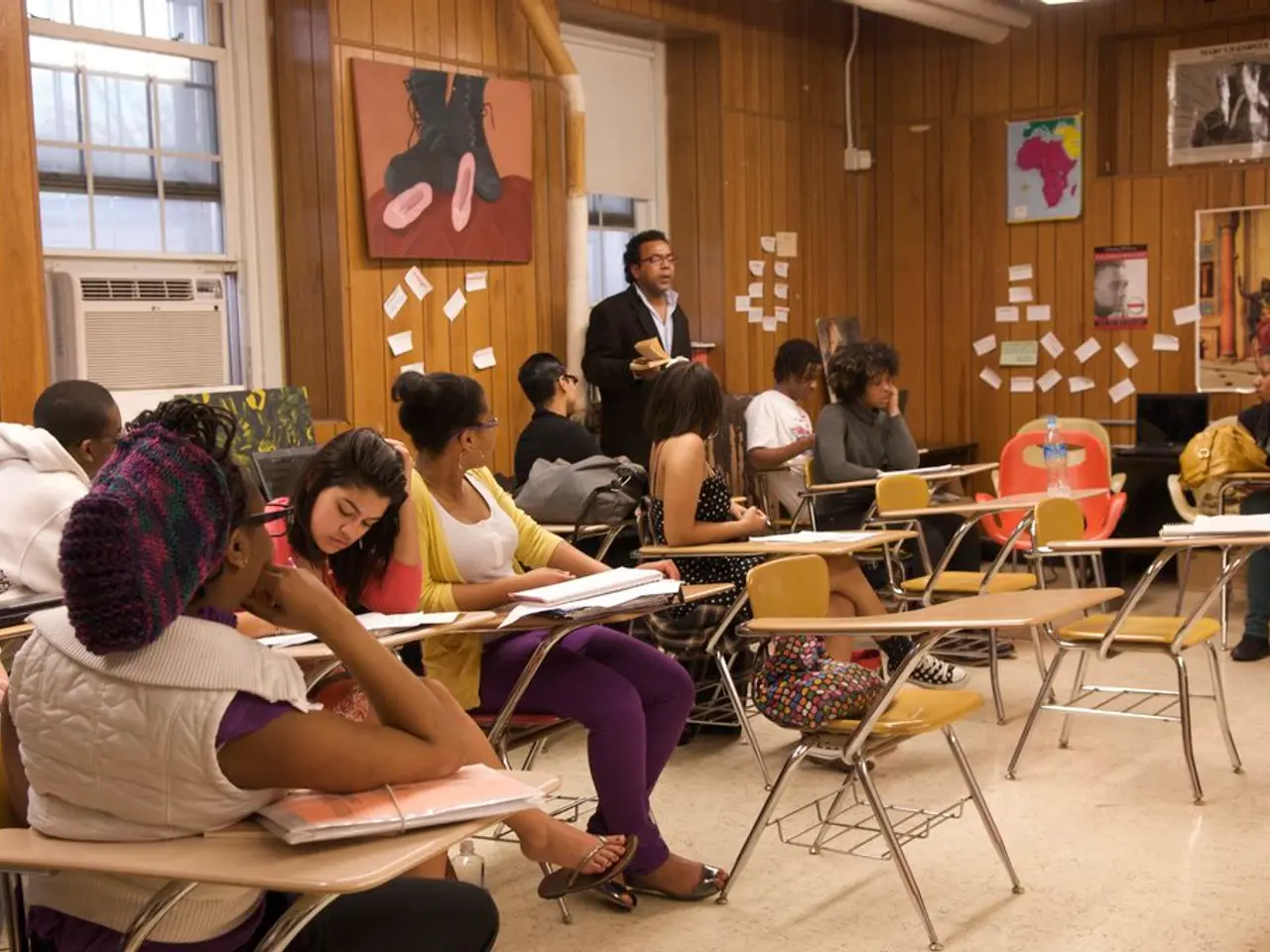Differences Highlighted: Experiential Learning versus Conventional Evaluations, Shattering assumptions in Learning Methods
In today's rapidly changing world, traditional methods of education are being re-evaluated to better prepare students for the challenges of the 21st century. A key shift is the move towards experiential learning, which differs significantly from traditional assessment methods.
Traditional testing primarily measures individual recall and performance under pressure. Students are often ranked against their classmates rather than receiving feedback on growth or teamwork abilities. These assessments primarily test the ability to store and retrieve specific information under timed conditions, and reflect a student's performance on specific testing dates rather than their learning journey.
In contrast, experiential learning emphasizes active, real-world experiences combined with reflection. This approach prepares students for the modern workforce by fostering transferable skills such as critical thinking, problem-solving, collaboration, communication, adaptability, and leadership.
Assessment in experiential learning becomes an ongoing conversation between students and educators. Methods like portfolios, presentations, project demonstrations, peer evaluations, and reflective journals are used to better capture skill development and practical growth. This approach moves away from the reliance on summative evaluations like exams to measure what students have learned at the end of a unit.
Experiential learning centers on the learning journey, encouraging students to apply theoretical knowledge in real-life or simulated environments, confront challenges, make decisions, and learn from successes and failures. This contrasts with traditional methods that commonly emphasize final outcomes or products, often in controlled, passive settings.
Experiential learning actively cultivates workforce-ready competencies—including teamwork, communication, leadership, adaptability, and problem-solving—by engaging students intellectually, emotionally, physically, and socially in tasks that mimic workplace demands. This requires students to take ownership of their learning, often outside their comfort zones, where outcomes are not guaranteed.
Moreover, experiential learning integrates continuous reflection before, during, and after activities, enabling learners to critically analyze their assumptions and decision-making processes, which deepens understanding and self-awareness, crucial for lifelong learning and workforce adaptability.
Overall, experiential learning offers a more holistic, skills-oriented preparation for the modern workforce compared to traditional assessment methods, which primarily measure rote knowledge acquisition and fail to adequately develop or evaluate practical and interpersonal skills essential in today’s job market.
[1] Education Week. (2020). 5 Reasons Experiential Learning is the Future of Education. Retrieved from https://www.edweek.org/leadership/opinion-5-reasons-experiential-learning-is-the-future-of-education/2020/03
[2] Hmelo-Silver, C. E. (2004). Active Learning in the College Classroom. American Psychologist, 59(7), 449-458.
[3] Koltay, L., & Tóth, G. (2019). The Role of Experiential Learning in the Development of Workplace Skills. In Proceedings of the 11th International Conference on Information and Communication Technologies in Education (pp. 1-6).
[4] National Research Council. (2000). How People Learn: Brain, Mind, Experience, and School. Committee on Developments in the Science of Learning.
[5] Siegel, R. M. (2010). The Power of Practice: Building Skills and Confidence in the Classroom. ASCD.
E-learning platforms, focusing on education-and-self-development, can effectively facilitate personal-growth by promoting experiential learning, offering real-world simulations and interactivity. This approach, differing from traditional methods, encourages active learning, fostering skills like critical thinking, problem-solving, and adaptability, essential for personal and professional growth.
In contrast to conventional testing methods, experiential learning emphasizes ongoing feedback and evaluation, utilizing methods like portfolios and reflective journals, to chart an individual's learning journey and growth trajectory, rather than just final outcomes or products.




